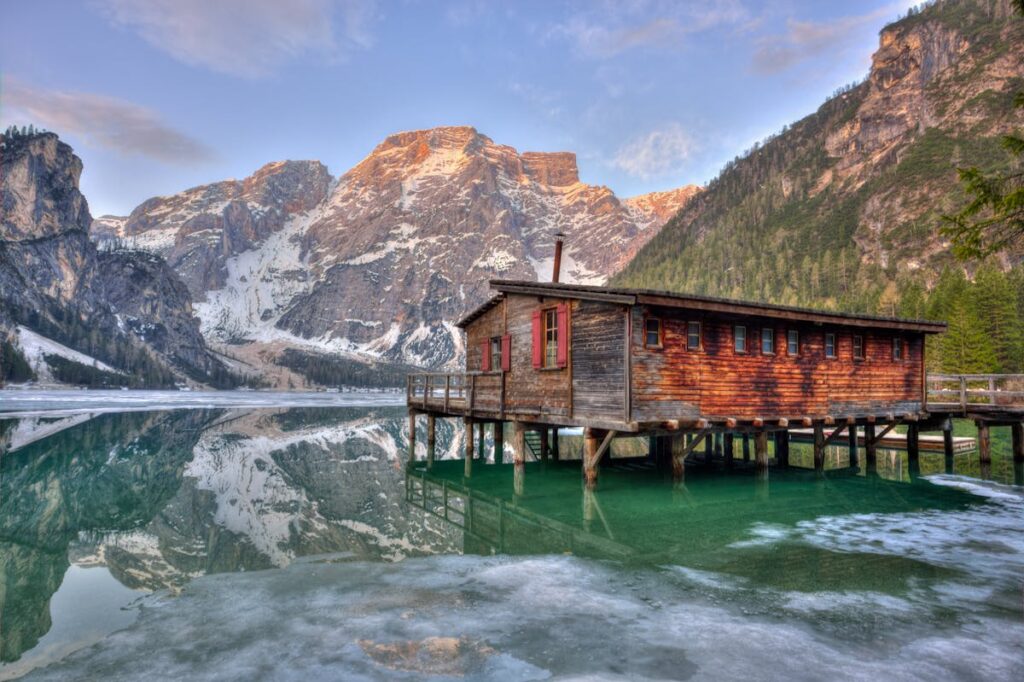
There is a curious hum in the air these days, a kind of tremor beneath the pavement, as if even the roots of the trees are uncertain whether to keep growing upward or to retract, embarrassed, back into the soil.
I have watched, with no small amount of bemusement, how mankind, that celebrated animal, has taken it upon himself to outwit Nature—not by climbing her peaks or deciphering her riddles, but by disputing her laws altogether. And not just any law, mind you, but what may be the greatest of them all: the law of fitness.
It is the old principle, made famous by Darwin but enforced long before him, that only the fittest survive. This was not so much a rule as a tendency, a quiet logic moving through the limbs of creation. The flower that bent too low snapped in the wind; the fox that slept too deeply met the owl. There was an elegance to it, even a kind of cruel poetry. Life sharpened itself against death, and in doing so, became keener, swifter, stronger.
But what of now? We—lords of asphalt and antiseptic, custodians of calories and convenience—have, by slow degrees, conspired against this primal contract. With every syringe and subsidy, we have declared that even the dull blade shall not rust, that even the flower with no stem shall bloom in the greenhouse. We have built systems to cradle the weak, to extend the days of the feeble, to carry even the most misshapen eggs safely to hatching.
This is not without its mercy, nor without its nobility. I am not one to scorn compassion. I would not have us throw the sick to the wolves or let the old drift into the woods to perish, as the harsher customs of old once dictated. But I do wonder—quietly, as one wonders whether it is truly the rooster who wakes the sun—what becomes of a species that refuses to prune itself? What happens to a tree that never sheds a diseased branch?
Our modern age, gilded and medicated, insulated by devices and divested of hardship, has made the survival of the weakest not only possible, but commonplace. We rejoice that no man need die of a toothache or a broken leg; we marvel at the machines that keep hearts beating beyond their own will. But in our triumph over nature’s severity, have we not also blunted her wisdom? Have we perhaps mistaken charity for progress?
For it is one thing to save a life, and quite another to preserve the conditions that allowed that life to weaken. In this way, our medical, social, and economic advances—though noble in themselves—may conspire to protect not merely the vulnerable individual, but the vulnerability itself. We have not merely saved the man who falls; we have paved the road so no man ever trips again, even if he must walk with his eyes closed.
What, then, are we becoming? A species extended in time, but perhaps shortened in character? Are we a civilization prolonged by tubes and tempered glass, yet slowly drained of vigor? What of the hardy, the wild, the indomitable spirit that once stared down storms and slept on stone? Have we traded him for the consumer, who cannot live without signal or power outlet?
And yet, to suggest a return to that fundamental, ruthless life—where only the strong survive and the weak are left behind—seems not only impractical, but perhaps immoral. It offends our sense of fairness, our hard-won compassion. For who among us is always the strong one? Strength, after all, is a tide. Today’s predator is tomorrow’s prey. Even the oak has its lightning. And perhaps the beauty of man is not that he is fit to survive, but that he is willing to love the unfit, to carry the lamb with the broken leg.
Still, we must tread carefully. If all weakness is preserved, and all strength made irrelevant by systems of safety, what becomes of excellence? What becomes of courage? Who climbs the mountain when all are given an elevator?
Nature, I think, would not be angry with us for our mercy, but she might be puzzled by our long detours. She might peer in at our padded lives and wonder whether we are still hers, or if we have wandered too far from her fierce hearth.
And so I walk in the woods, not to escape this question, but to live it. I observe the birds, who do not pity the fallen chick, and the fox, who feeds without remorse. Yet I do not emulate them. I merely remember that once, not so long ago, our strength was forged in fire and frost, and not in legislation. That a people must have hardship, not only to test them, but to temper them. That mercy and discipline must walk hand in hand, or both shall falter.
Let us preserve the tender and the weak, yes—but not at the expense of our spirit. Let us build systems, but not sanctuaries so complete that nothing wild can thrive within them. And above all, let us ask not only who survives—but what survives in them.
Join us in making the world a better place – you’ll be glad that you did. Cheers friends.